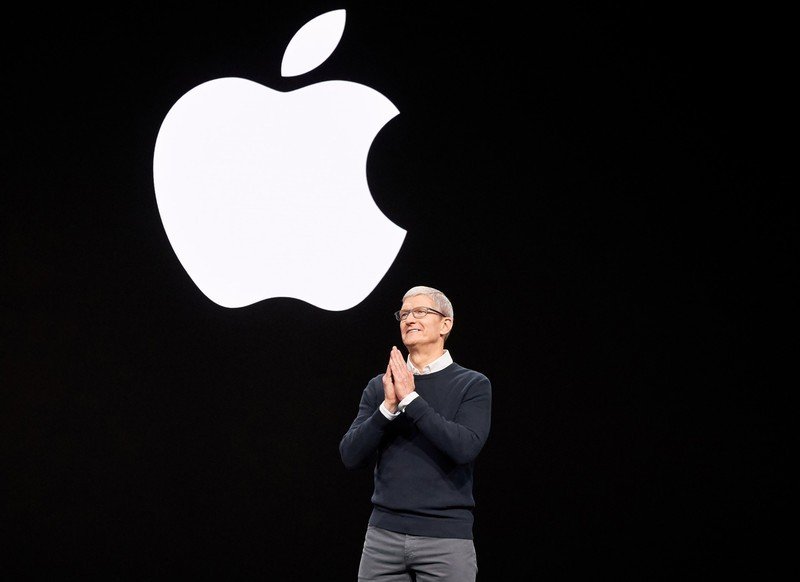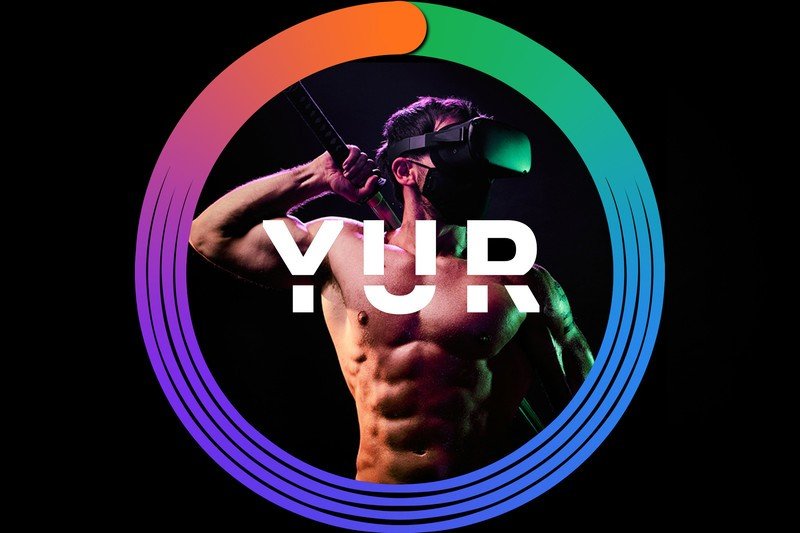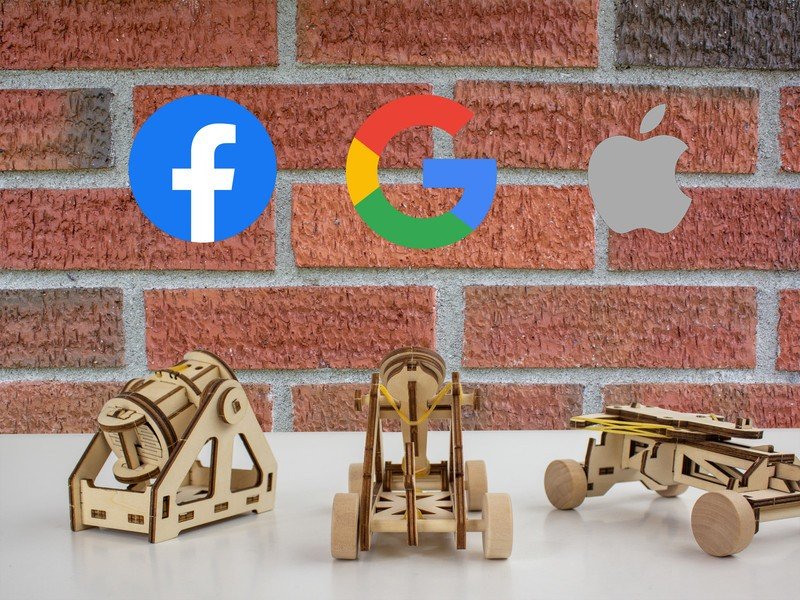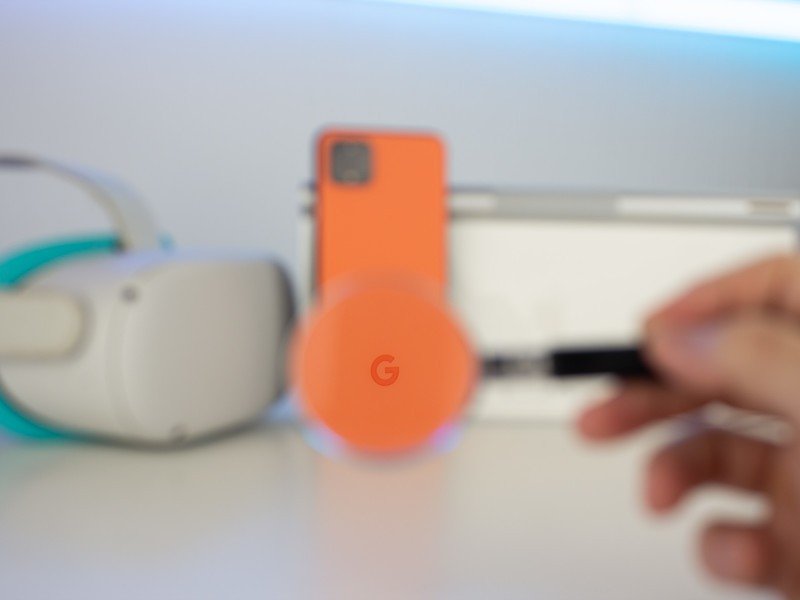How one developer got shamelessly 'Sherlocked' by Facebook

Have you ever had an idea so good you had to stop everything you were doing just to work on it? That's the boat Cix Liv found himself in a few years back when he realized VR headsets could be used as a way to track calories burned while playing games. After all, VR games are notoriously active games that often require you to move around quite a bit. Even accessories like the best face covers target better sweat resistance and often work to keep lenses from getting fogged from all the heat.
Liv went through all the motions you would expect to achieve his dreams. He co-founded a company of like-minded individuals named YUR, Inc. to begin the arduous journey of developing algorithms that would accurately track calories burned, no matter what game you played. He even changed his legal name to Cix Liv — a name derived from his seasoned World of Warcraft persona and one of the two companies he founded, LIV — after a nasty bout with a serious case of identity theft. Liv was all-on on his dream to turn VR gaming into something far more than a fun time had after work hours ended.
So imagine Liv's surprise when his company's ingeniously designed YUR Fit software got rejected from the Oculus Store outright. To make matters worse, a year-long expedition of trying to get certified onto the store only led to Facebook themselves coming out with a nearly identical version of his app — known as Oculus Move — which was built into the Quest and Quest 2 November 2020 update, effectively rendering his work fruitless. Today, Cix Liv no longer works at YUR or LIV because of Sherlocking.
We've covered this, and many other examples of "Sherlocking" before, citing the deceptive practice of big companies like Facebook, Google, and Apple which regularly take ideas from smaller developers and work them into their own products' operating systems. That, in turn, renders the third-party apps more or less useless and usually causes sales to drop off a cliff.
Sherlocking: A brief history

Sherlocking originated from the eponymous Mac app that was introduced in macOS 8.5 in the late 90s. Watson, a search app released by Karelia Software in November 2001, improved upon Sherlock by adding in the ability to include web results in searches. Not even a year later in September 2002, Apple updated Sherlock to have the same functionality, completely killing off Watson in the process.
Apple never compensated Karelia Software for its idea, and the company has always stood by the line that this update was the "natural evolution of Sherlock's search capabilities." While that may be so, this little spat coined the term "Sherlocked" and is used to refer to any instance of a big company taking a smaller company's ideas without proper compensation.
The term 'Sherlocked' is used to refer to any instance of a big company taking a smaller company's ideas without proper compensation.
Apple has Sherlocked ideas several times since the original phrase was coined, leading many to wonder what regulatory authorities will do about it, if anything. Developers of apps that were Sherlocked are typically incensed and end up losing out on significant portions of — or all of — their cash flow, but the parties that benefit from this practice are much larger than the developers themselves. Namely, the users of a particular OS are now getting something for free where it previously had to be bought, so what's the problem?
Be an expert in 5 minutes
Get the latest news from Android Central, your trusted companion in the world of Android
In a nutshell, the biggest issue is that Sherlocking isn't just performed by Apple; just about every major company that develops an OS has been guilty of the practice, but the recent surge of popularity of the Oculus Quest 2 has brought fresh examples to light from a company that's only just starting its foray into developing its own operating systems: Facebook.
Cix Liv's to tell the tale

The journey of YUR Fit is a long and storied one, filled with all the emotions you'd expect from a blockbuster drama movie. It all started out with the Santa Cruz development kit. "Santa Cruz" was the codename for the project that would eventually become the Oculus Quest, and it was with this development kit that Cix Liv and the folks at Yur, Inc. developed YUR Fit.
Over the next several months, YUR tried to get its app approved time and time again, only to be denied for several nebulous reasons.
When YUR was rejected from the regular Oculus app store — a problem that many developers have complained about since the Quest started becoming popular — it turned to SideQuest to distribute its app. While SideQuest has become the "bastion of freedom" for Oculus developers looking to stay away from Facebook's difficult app approval methods, it also reaches a significantly smaller user base because it requires extra steps to get working.
Over the next several months, YUR tried to get its app approved time and time again, only to be denied for several nebulous reasons. Once, the app was rejected citing performance — a legitimate concern given that the Quest line of VR headsets runs off lower-power mobile chipsets — but metrics provided by YUR proved this wasn't an actual issue. Later, it was rejected citing privacy concerns over what data the app collects and where it's stored. Again, a legitimate claim but one that could, ultimately, be raised over far more apps than just this one.
"The very pointed concern that I have with Facebook is how they literally just blocked us and then developed a competing app," Liv told Android Central. In other words, Liv got Sherlocked.
When it was revealed in late 2020 that Oculus Move had been under development the entire time YUR was trying to get in the Oculus app store, red flags went up at YUR. Just how much data did Oculus have from YUR? How much of the development of the YUR Fit app did Oculus mirror with Oculus Move? These, and many other questions, were brought up in our nearly hour-long chat with Liv, who is no longer working with YUR, Inc. or LIV — the very companies he helped found.
This wasn't just any fight for Liv. This was a fight that started when he co-founded the eponymous company in 2017 — a mixed reality capture tool that forged a living for many VR YouTube streamers — which, ironically, has also seen its features mirrored in the Oculus app you can find on your phone, also known as Oculus Mixed Reality Capture.
There is no real recourse for developers who feel they have been wronged.
As with many Sherlocking cases, both Oculus Move and Oculus Mixed Reality Capture can be chalked up to the natural evolution of the platform. After all, how could you argue against that logic when both things clearly fit the platform like a glove? The issue here revolves more around who owns the idea, both intellectually and legally, and why there doesn't seem to be any real recourse for developers who feel they have been Sherlocked.
A Facebook spokesperson told us that "All apps on the Oculus Store are required to meet the same technical requirements that ensure users enjoy a high-quality and safe experience. We understand some developers may disagree with those requirements, but we apply them consistently. Apps that cannot meet those requirements cannot ship on the Store. We do not review apps for any purpose other than to test the app being reviewed. And when we test an app, we do not use data from those tests for other purposes."
Facebook's response is one that will surely be called into question by developers like Liv, who say they have experienced the exact opposite of the company's claims.
Walled garden fortifications

Just as we've seen with the Right to Repair movement, the idea that you actually own the device you purchased — or, in a developer's case, can just develop anything they'd like on any given device — is a bit of a legal grey area. As it stands, companies like Google, Apple, and Facebook are the gatekeepers for what can be bought and sold on their app stores.
In a way, it's like the existing retail model; in order for customers to get your products, you have to find a retailer that is willing to sell your products. The problem with this analogy is that, in the retail industry, there's actual competition. If Walmart won't sell your product, you can just as easily go to another big-box retailer like Target. If that fails, there's almost always some specialized boutique that will hawk your wares.
The problem with digital marketplaces is that, unlike retail stores, there is no real alternative.
Carl Szabo, vice president and general counsel of NetChoice, an industry group whose founders include Google, Facebook, and Amazon, says these types of digital stores are needed because they build trust with the consumer. When you put your credit or debit card into Google Play or the Oculus Store, you aren't worried that some crook is going to make off with your money and not deliver the goods. No, you know Facebook and Google are good for it and that they're going to cater to you, the consumer.
The problem with a platform like iOS and, to slightly lesser extents, Android and Oculus, is that there is no real alternative. In the case of iOS, there are zero alternatives and you must go through Apple if you want your app running on iPhones worldwide. Because the Oculus Quest is built on Android, apps can be sideloaded — hence the SideQuest marketplace — but this significantly reduces the possible number of people who can buy your app or game by the millions.
Oculus App Lab fills a gap, but it doesn't clear up the problem: the criteria to get an app approved.
As a direct response to the difficulty of getting approved to the full-fledged store, Facebook developed Oculus App Lab as a secondary place for "apps in testing" to reside before they make the cut and get listed on the full store. While this certainly fills a gap, it doesn't help clear up the actual problem: the criteria to get approved.
If you take a look at the listings on Oculus App Lab, you'll likely scratch your head at some of them. Games like Crisis VRigade 2, which made its way past Sony's own strict controls and onto the PSVR marketplace, are only available in the "experimental" App Lab on Quest.
Similarly, it took Virtual Desktop developer Guy Godin over a year to get the full version of his popular app approved on the Oculus Store. Interestingly enough, Virtual Desktop is one of the few Sherlocked apps that remains competitive and profitable despite a system-level feature replacing the core purpose of the app.
App Lab's apparent six-week approval time is a death knell for small developers.
Liv says that even when you get approved in the secondary App Lab marketplace, there's often a six-week lead time on receiving the approval. And if your app gets rejected, you're right back to square one to fix it and wait another six weeks on the approval, while companies like Apple and Google often approve app store listings within 48 hours. That's a death knell to a small developer who doesn't have that kind of luxury and time and, ultimately, it hamstrings indie developers on the Oculus platform.
Facebook has acknowledged this problem to Android Central and said it has made strides to improve App Lab approval rates and times, citing a large volume of submissions as the initial problem. A Facebook spokesperson specifically told us that it's "making progress, but there's still quite a bit of room for more improvement. We appreciate the patience of the developer community as we've scaled up this program."
When the legal system lets you down

So what happens if you're a developer and find yourself in a position of being Sherlocked? Suits can be brought forth alleging copyright claims to software which, surprisingly, is copyright protected like any other literary work. Direct code-copying violations are theoretically an easy way to pin ownership of a product and, therefore, a copyright violation. "If you have a legitimate claim, and you bring that claim, one of the provisions is that the defendant will pay your legal fees if you win," NetChoice's Szabo explains.
The legal system was built for this exact kind of case — especially when it's in an industry that moves as quickly as tech or gaming — but cost is still a massive hurdle, even if it's made up in the end (if you win). Liv told me that YUR spoke with lawyers about the case and were quoted somewhere in the ballpark of half a million dollars just for the retainer fee. That means you need half a million dollars upfront just to get things started.
The legal system was built for this kind of case, but big companies drag out the length to incur expenses.
Public defenders and pro bono cases are always a thing, too, but companies like Google, Apple, and Facebook have an army of lawyers ready to defend their clients, oftentimes dragging cases out for months or years. That time frame makes it extremely difficult — or impossible — to even begin a case.
Sally Hubbard, director of enforcement strategy at the Open Markets Institute, an anti-monopoly think tank, has seen this situation happen more than once. In fact, in Hubbard's book, Monopolies Suck, she details an almost carbon copy of YUR's story, just with Apple as the villain.
Matt Ronge, co-founder and CEO of Luna Display, claimed that Apple used his company for market research by inviting them to demonstrate their product and expressing support, only to later ghost Ronge completely. Sure enough, Sidecar launched the very next year and was, as you might guess by now, a clone of Ronge's product.
Near carbon-copies of this exact scenario have played out with Apple, Google, Amazon, and others.
Additionally, Ronge says that companies like Apple — and Facebook, by virtue of this story — have access to functionalities that third-party developers don't. When Oculus Move launched last November, for instance, it was done as a system-level function that operates in the background without a user having to install or configure it. In fact, since it's system-level code, it's prioritized in a way that third-party developers wouldn't be able to, just as the Oculus Guardian or other similar system-level functions are.
So why don't we hear about this more often? Frankly, fear.
Developers are afraid to speak out because they fear retaliation; something Sally Hubbard also agrees with. Going the antitrust route has, historically, been unsuccessful because of the time it takes to complete these sorts of cases. We've seen that even companies as big as Epic Games, makers of the Unreal Engine and the seemingly forever-popular Fortnite, are having their cases dragged out for months and are likely dropping a fortune on legal fees in a challenge against Apple and Google.
So why don't we hear about this more often? Fear.
Solving the case

Ultimately, the onus is on companies like Facebook, Google, and Apple if they want to foster good relationships with developers. As a gatekeeper, companies like Facebook have a vested interest in making sure its developers are not just happy, but thriving. Creating a hostile environment where a small, innovative developer might worry about their ideas being stolen isn't healthy for anyone, and it's certainly not a way to treat the very people who make your platform possible in the first place. It may, however, make financial sense. And that might be why large companies do this kind of thing.
Big Tech has a huge cultural problem that needs to be cured, and it's likely regulation that will begin the healing process.
Regulation is the beginning of a long process that needs to take place in order to fix what is, ultimately, a problem rooted in the heart of these companies' culture. There's a reason there are countless numbers of antitrust cases against Google. There's a reason developers are burned every single year when Apple's next big software feature was so obviously stolen from someone else's hard work.
In the case of European antitrust lawsuits against smart home products from Google, Amazon, and Apple, we're seeing substantial progress in terms of interoperability happening with Matter; a new standard birthed from a joint effort between these big companies. This, too, can happen with OSes to help stem the problem of Sherlocking.
There's little doubt that curated app stores have created a safe haven for developers and consumers alike, but they need to be further tweaked to provide additional transparency and opportunity not just for consumers, but also for the developers whose entire livelihoods are structured around. As products like the Oculus Quest 2 continue to dominate the market, companies like Facebook need to provide reassurance to developers looking to target their platform.
Facebook needs to take responsibility for its position as the market leader; especially as there are no financially viable alternatives for developers.
With no real competition in the market, Facebook needs to take responsibility for its position as the market leader, especially as there are no financially viable alternatives for developers. The PC VR market has never been lucrative for the vast majority of developers, and as the first opportunity for many of these folks to actually make some money with their games, it behooves Facebook to step up to the plate.
Several developers aren't convinced that this will ever happen, but there have been enough instances of Facebook playing fair that tell me it's possible.
If it's just about building up the platform for the greater good, these big tech companies need to at least offer developers a way to get rewarded for their good ideas, not get punished for being the little guy. In the end, Liv told me that he would have rather seen the company get acquired by Facebook, even if it was a forced choice. The problem is that Facebook, according to Liv, never even gave them the chance — and that is the greatest shame of all.

